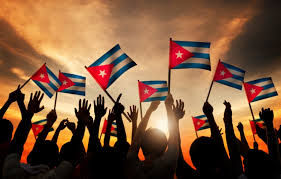When US - Cuba Normalizing Relations Becomes Difficult
- Manuel E. Yepe
- Feb 26, 2016
- 3 min read
Published on: Cuba Network in Defense of Humanity

Quite a task is facing the US and Cuban leaders and officials who must try to reach agreements on the way to the normalization of relations between two neighbor countries that have so many differences. In the first place, this is because normalization cannot be reduced to reproducing a past model; and because relations between Cuba and the United States have always been iniquitous.The disagreements between the US and Cuba that cause the current tensions stem from conflicting policies of both states. These derive from the contradiction between the independent vocation of the Cubans, and the efforts of a certain elite of imperialist orientation which has little to do with the best interests of the US citizens. In the early twentieth century, the United States imposed on Cuba a type of relationship –a novelty at the time– which today is recognized as neocolonialist. The US had opportunistically intervened in the war of independence Cuba was waging against Spain. The US craved and finally obtained Spain’s colonial system. Thus Washington managed to turn Cuba into a country dependent on the United States without conquering it in the traditional way. In fact, the term “sphere of influence” became, since then, an international euphemism for neo-colonialism. Subsequently, the US intervened militarily in Cuba in 1906, 1909 and 1912. Since 1925 the US interests in Cuba were protected by a cruel dictator who was overthrown in 1933 by a popular uprising. Washington sent to Cuba a special ambassador in charge of preventing the emergence of a left-leaning government after the powerful revolutionary movement that had developed on the Island to overthrow the tyrant. President Franklin D. Roosevelt, driven by strategic interests derived from the world war that would ensue, launched what he called “Good Neighbor Policy” and opposed armed interventions in Latin America. This reduced tensions in the region. Regarding Cuba, during this period the Platt Amendment was revoked, but the military base in Guantanamo Bay was kept, and a new sugar agreement was signed that reinforced Cuban dependence on the US. After two decades of “representative democracy” supervised by Washington, in March 1952 the “strong man” of the United States in Cuba, Fulgencio Batista, carried out a coup d’état to prevent the rise of a government that seemed unusually honest and enjoyed great popularity, but was not Washington’s favorite. The armed struggle against the tyranny was the Cuban’s reaction. Batista received broad American support. There were US military advisors for all armed forces and the police. The US military base at Guantanamo supplied fuel and ammunition for the dictator’s aircraft that indiscriminately bombed rural areas and defenseless villages. After the revolutionary triumph of January 1959, the US regime headed by Dwight D. Eisenhower initiated a period of hostile actions against Cuba. This was continued by successive administrations to the present, always with the CIA as a main instrument. The United States cut the sugar quota allocated to Cuba and the Cuban government responded by nationalizing the US-owned sugar mills. The US Joint Chiefs of Staff immediately recommended to the President a total invasion of the Island. A force of 1,500 mercenaries, trained, armed and directed by the CIA, landed at the Bay of Pigs on Cuba’s south coast. The invasion –defeated in only 72 hours– proved a humiliating failure for the United States. Ten successive US administrations have tried to strangle the Cuban revolution with all the means at their disposal, except for an open and total war. US-sponsored terrorist activities have killed about 3,500 Cubans; while more than two thousand persons have been maimed by such actions. Sabotage of economic targets, biological warfare actions, and repeated attempts on the life of Fidel Castro and other leaders have been but some manifestations of this unequal confrontation. In 23 consecutive annual gatherings, the economic blockade decreed by the US has been rejected by an overwhelming majority of member states of the United Nations General Assembly. However, Washington has not responded to this almost unanimous outcry from the international community. Therefore, in the absence of fairer terms, for Cubans the normalization of relations with the United States can only mean a move towards more respectful and just links. That’s what should be in Obama’s portfolio in his coming historic visit to Cuba.
CNIDOH/AO



Comments